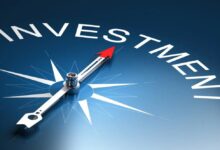Asset Management CRM Platform: 7 Powerful Tools to Transform Your Business
Navigating the complex world of asset management just got smarter. Discover how an asset management CRM platform can streamline operations, boost client relationships, and drive growth—all in one powerful system.
What Is an Asset Management CRM Platform?

An asset management CRM platform combines the robust client relationship capabilities of a Customer Relationship Management (CRM) system with the specialized needs of asset and wealth management firms. It’s not just a database; it’s a dynamic ecosystem that tracks client interactions, manages portfolios, automates workflows, and ensures compliance—all while delivering personalized service at scale.
Core Definition and Purpose
The term ‘asset management CRM platform’ refers to software solutions designed specifically for financial advisors, wealth managers, and institutional asset managers. Unlike generic CRMs, these platforms are built to handle sensitive financial data, integrate with portfolio management systems, and support complex client hierarchies. The primary goal is to centralize client information and streamline communication, reporting, and service delivery.
- Integrates client data with investment performance metrics
- Supports multi-tiered client structures (e.g., families, trusts)
- Enables personalized communication based on investment behavior
According to Investopedia, CRM systems in finance are evolving beyond sales tracking into full-service client engagement engines (Investopedia – CRM Definition).
How It Differs from Traditional CRM Systems
Standard CRM platforms like Salesforce or HubSpot are designed for broad industries such as retail, SaaS, or e-commerce. In contrast, an asset management CRM platform includes features tailored to financial services:
- Secure handling of sensitive financial data under regulatory standards (e.g., GDPR, SEC, MiFID II)
- Integration with portfolio accounting and performance reporting tools
- Automated compliance workflows and audit trails
- Support for discretionary and non-discretionary advisory models
“A CRM in asset management isn’t about leads and conversions—it’s about trust, transparency, and long-term stewardship of wealth.” — Financial Technology Analyst, Deloitte Insights
Key Industries That Benefit
While primarily used by wealth and asset management firms, this technology also serves:
- Private banks managing high-net-worth individuals (HNWIs)
- Family offices coordinating multi-generational wealth
- Registered Investment Advisors (RIAs) scaling their practices
- Pension funds and institutional investors with complex stakeholder reporting needs
These organizations face unique challenges—managing fiduciary responsibilities, delivering consistent client experiences, and maintaining regulatory compliance—all of which are addressed by a specialized asset management CRM platform.
Top 7 Features of a Modern Asset Management CRM Platform
To truly transform operations, an asset management CRM platform must go beyond basic contact management. The most effective systems offer a suite of advanced features designed to enhance client service, improve advisor productivity, and ensure regulatory adherence.
1. Unified Client 360° View
The cornerstone of any effective CRM is a comprehensive, real-time view of each client. In an asset management context, this means aggregating data from multiple sources—portfolio holdings, transaction history, communication logs, risk profiles, and life events—into a single dashboard.
- Displays all client accounts, including joint, trust, and corporate structures
- Tracks client preferences, meeting notes, and service requests
- Integrates with external data providers like Morningstar or Bloomberg for up-to-date market context
This holistic view allows advisors to deliver hyper-personalized advice and anticipate client needs before they arise.
2. Automated Workflow and Task Management
Manual follow-ups and administrative tasks eat up valuable advisor time. A powerful asset management CRM platform automates routine processes such as onboarding new clients, scheduling reviews, sending birthday messages, or triggering compliance alerts.
- Creates task reminders based on client lifecycle stages
- Automates document collection and e-signature workflows
- Triggers alerts for rebalancing opportunities or policy renewals
For example, when a client’s portfolio drifts beyond its target allocation, the system can automatically notify the advisor and suggest rebalancing options.
3. Performance Reporting and Analytics
Transparency is key in asset management. Clients expect clear, timely reports on their investment performance, fees, and tax implications. A top-tier asset management CRM platform integrates directly with portfolio management systems to generate branded, customizable reports.
- Exports PDF or interactive dashboards for client meetings
- Supports GIPS-compliant performance reporting standards
- Enables drill-down analysis by asset class, sector, or manager
Platforms like Addepar have set industry benchmarks by combining CRM functionality with deep analytics and visualization tools.
4. Compliance and Regulatory Oversight
With increasing scrutiny from regulators like the SEC and FCA, compliance cannot be an afterthought. An asset management CRM platform embeds compliance into daily operations through audit trails, permission controls, and policy enforcement.
- Maintains a complete record of all client communications and decisions
- Enforces suitability checks before recommendations are made
- Generates compliance reports for internal audits or regulatory exams
This proactive approach reduces risk and strengthens client trust.
5. Client Portals and Self-Service Tools
Modern clients demand 24/7 access to their financial information. A robust asset management CRM platform includes secure client portals where users can view account balances, download statements, update personal details, and schedule meetings.
- Offers multi-factor authentication and encryption for security
- Supports mobile access via responsive design or native apps
- Allows clients to set communication preferences and consent settings
These portals not only improve client satisfaction but also reduce the administrative burden on advisors.
6. Integration with Third-Party Systems
No CRM operates in isolation. The best asset management CRM platforms offer seamless integration with custodians (e.g., Fidelity, Schwab), portfolio management software (e.g., Tamarac, Orion), and accounting systems.
- Syncs data in real-time to avoid manual entry errors
- Supports API-based connections for custom integrations
- Enables single sign-on (SSO) across platforms
For instance, integrating with Envestnet | Yodlee allows automatic aggregation of external accounts, giving advisors a complete picture of a client’s net worth.
7. AI-Powered Insights and Predictive Analytics
The future of asset management CRM lies in artificial intelligence. Advanced platforms use machine learning to analyze client behavior, predict churn risk, recommend next-best actions, and even draft personalized email content.
- Identifies clients who may be dissatisfied based on engagement patterns
- Suggests optimal timing for outreach based on past interactions
- Generates natural language summaries of portfolio changes
As reported by McKinsey, AI-driven CRM tools can increase advisor productivity by up to 30% (McKinsey – Wealth Management Sales).
Benefits of Using an Asset Management CRM Platform
Implementing a dedicated asset management CRM platform delivers tangible benefits across every level of a financial services organization—from advisors and compliance officers to executives and clients.
Improved Client Experience and Retention
When advisors have instant access to a client’s full history and preferences, they can deliver more meaningful, personalized service. This leads to higher satisfaction and stronger emotional connections.
- Reduces response times to client inquiries
- Enables proactive communication (e.g., market updates, life event check-ins)
- Increases client trust through consistent, transparent interactions
A study by Bain & Company found that wealth management firms using integrated CRM systems saw a 15–20% improvement in client retention rates.
Increased Advisor Productivity
Advisors spend nearly 60% of their time on administrative tasks. An asset management CRM platform automates much of this work, freeing up time for strategic planning and client engagement.
- Automates routine follow-ups and document requests
- Streamlines meeting preparation with pre-populated agendas
- Reduces time spent switching between disparate systems
This efficiency gain allows advisors to serve more clients without sacrificing quality.
Enhanced Data Accuracy and Security
Manual data entry is prone to errors and security risks. A centralized asset management CRM platform ensures data consistency and protects sensitive information through role-based access and encryption.
- Eliminates duplicate or outdated client records
- Enforces data validation rules at point of entry
- Provides audit logs for all changes and access events
This level of control is essential for meeting regulatory requirements and maintaining client confidence.
How to Choose the Right Asset Management CRM Platform
Selecting the right platform requires careful evaluation of your firm’s size, structure, technology stack, and long-term goals. Not all solutions are created equal, and a poor fit can lead to low adoption, wasted resources, and operational friction.
Assess Your Firm’s Needs and Goals
Start by defining what you want to achieve. Are you looking to improve client onboarding? Scale your advisory team? Enhance compliance? Your objectives will shape your selection criteria.
- Map out key client touchpoints and pain points
- Identify current workflow bottlenecks
- Determine scalability requirements (e.g., number of clients, AUM growth targets)
For example, a small RIA may prioritize ease of use and affordability, while a large institution may need enterprise-grade security and customization.
Evaluate Integration Capabilities
The value of an asset management CRM platform is multiplied when it connects seamlessly with your existing tools. Evaluate how well each platform integrates with your custodian, portfolio management system, email provider, and document storage.
- Check for pre-built connectors or APIs
- Ask about data sync frequency and reliability
- Test integration during a trial period if possible
Platforms like Redtail CRM offer extensive integration libraries tailored to financial advisors.
Consider User Experience and Training
No matter how powerful a system is, it won’t deliver value if your team doesn’t use it. Prioritize platforms with intuitive interfaces, mobile access, and strong onboarding support.
- Look for drag-and-drop customization and role-based dashboards
- Ensure mobile compatibility for advisors on the go
- Verify the availability of training resources and customer support
High user adoption is critical—studies show that firms with strong CRM adoption see 2–3x higher ROI than those with low engagement.
Top 5 Asset Management CRM Platforms in 2024
The market for asset management CRM platforms has grown rapidly, with both specialized fintech startups and established players offering compelling solutions. Here are five of the most impactful platforms today.
1. Addepar
Addepar stands out for its powerful data aggregation and analytics engine, making it ideal for family offices and institutional asset managers. Its CRM capabilities are embedded within a broader wealth management platform.
- Aggregates data from over 100 custodians and institutions
- Offers real-time performance reporting and scenario modeling
- Provides a unified view of complex multi-entity structures
Used by firms like Rockefeller Capital Management, Addepar combines CRM functionality with deep financial intelligence. Learn more at addepar.com.
2. Envestnet | Advisor CRM
Envestnet’s CRM solution is tightly integrated with its broader ecosystem of portfolio management, rebalancing, and reporting tools. It’s particularly strong for RIAs using the Envestnet platform.
- Automates client onboarding and document workflows
- Syncs with Envestnet’s portfolio management and billing modules
- Includes AI-driven insights for client engagement
Its strength lies in seamless data flow across the entire advisory workflow. Visit envestnet.com for details.
3. Redtail CRM
Redtail has long been a favorite among independent financial advisors for its ease of use, affordability, and strong customer support. It’s a pure-play CRM with solid integration capabilities.
- Offers customizable workflows and task automation
- Includes email tracking and document management
- Provides robust reporting and compliance tools
Redtail is ideal for small to mid-sized firms looking for a reliable, user-friendly asset management CRM platform. Explore at redtailtechnology.com.
4. Wealthbox
Wealthbox combines CRM, email integration, and task management in a sleek, modern interface. It’s designed specifically for financial advisors and integrates well with Gmail, Google Calendar, and popular financial platforms.
- Syncs emails and calendar events automatically
- Offers pipeline management for prospective clients
- Includes client portal and e-signature capabilities
Its focus on simplicity and automation makes it a top choice for tech-savvy advisors. Learn more at wealthbox.com.
5. Salesforce Financial Services Cloud
For large institutions or firms already using Salesforce, the Financial Services Cloud offers a scalable, customizable asset management CRM platform with enterprise-grade security and AI capabilities.
- Leverages Salesforce’s powerful CRM engine and AppExchange ecosystem
- Supports complex client hierarchies and team collaboration
- Includes Einstein AI for predictive insights and automation
While more complex to implement, it offers unmatched flexibility for large-scale operations. Visit salesforce.com for more.
Implementation Best Practices for Asset Management CRM Platforms
Even the best platform will fail without proper implementation. A successful rollout requires strategic planning, stakeholder buy-in, and ongoing support.
Develop a Clear Implementation Roadmap
Start with a phased approach: assess current processes, define success metrics, select a pilot group, and set realistic timelines.
- Identify key stakeholders (advisors, compliance, IT)
- Set measurable goals (e.g., reduce onboarding time by 30%)
- Plan for data migration and cleansing
A well-structured roadmap minimizes disruption and ensures alignment across teams.
Ensure Data Quality and Migration
Poor data quality is the #1 reason for CRM failure. Before going live, clean your existing client data—remove duplicates, standardize formats, and verify contact information.
- Use automated tools to deduplicate and enrich records
- Validate data against custodial sources
- Establish ongoing data governance policies
High-quality data ensures accurate reporting and reliable automation.
Train and Support Your Team
User adoption depends on confidence and competence. Provide hands-on training, create quick-reference guides, and appoint internal champions.
- Offer role-specific training sessions
- Host regular Q&A forums post-launch
- Encourage feedback to refine workflows
Continuous support ensures long-term success and maximizes ROI.
Future Trends in Asset Management CRM Platforms
The evolution of asset management CRM platforms is accelerating, driven by AI, regulatory changes, and shifting client expectations. Firms that stay ahead of these trends will gain a competitive edge.
AI and Hyper-Personalization
Future platforms will use AI not just to analyze data, but to anticipate needs. Imagine a system that detects a client’s life change (e.g., retirement, inheritance) and automatically suggests a meeting agenda and portfolio review.
- AI-driven sentiment analysis of client communications
- Predictive modeling for client lifetime value
- Automated content generation for newsletters and reports
This level of personalization will redefine client engagement.
Blockchain and Decentralized Identity
As security concerns grow, blockchain technology may be used to verify client identities and secure transaction records. Decentralized identity models could give clients control over their data while streamlining KYC processes.
- Immutable audit trails for compliance
- Self-sovereign identity for faster onboarding
- Smart contracts for automated fee calculations
While still emerging, these technologies could transform trust and transparency in asset management.
Increased Focus on ESG and Impact Reporting
With rising demand for sustainable investing, CRM platforms will integrate ESG data directly into client profiles and reporting tools.
- Track client ESG preferences and portfolio alignment
- Generate impact reports showing carbon footprint or social outcomes
- Align recommendations with client values
This shift will make ESG not just an investment strategy, but a core part of client relationship management.
What is an asset management CRM platform?
An asset management CRM platform is a specialized software solution that combines client relationship management with financial data integration, compliance tools, and portfolio reporting to help wealth and asset managers deliver personalized, efficient, and compliant service.
How does a CRM help asset managers improve client retention?
By providing a 360-degree view of the client, automating follow-ups, and enabling personalized communication, an asset management CRM platform strengthens relationships, increases responsiveness, and builds trust—key drivers of client loyalty.
Can small financial firms benefit from an asset management CRM platform?
Absolutely. Platforms like Redtail and Wealthbox are designed for small to mid-sized firms, offering affordable pricing, easy setup, and scalable features that help advisors grow their practice without adding administrative burden.
What should I look for in a CRM integration with custodians?
Look for real-time data sync, support for major custodians (e.g., Schwab, Fidelity), secure API connections, and automatic reconciliation. Reliable integration ensures accurate reporting and reduces manual work.
Is AI really useful in asset management CRM systems?
Yes. AI enhances CRM systems by predicting client needs, automating routine tasks, analyzing engagement patterns, and generating insights that help advisors make better decisions and improve efficiency.
Adopting an asset management CRM platform is no longer optional—it’s a strategic imperative for firms aiming to deliver exceptional client service, maintain compliance, and scale efficiently. From unified client views to AI-powered insights, these platforms are transforming how wealth is managed and relationships are nurtured. By choosing the right solution and implementing it effectively, asset managers can unlock new levels of productivity, transparency, and growth. The future of asset management is integrated, intelligent, and client-centric—and it starts with the right CRM platform.
Further Reading:


